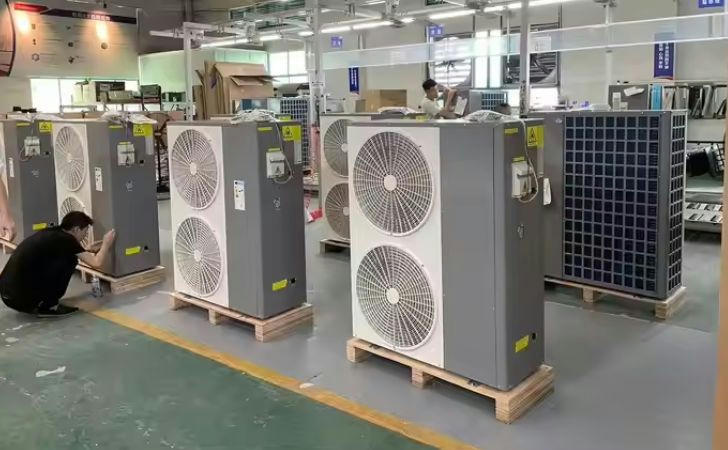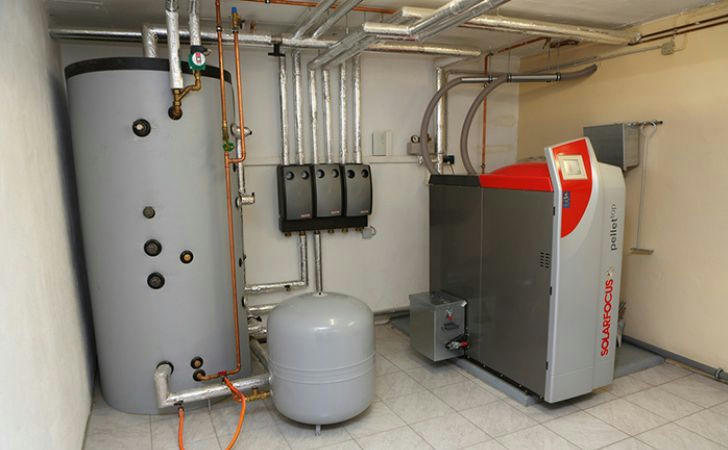How to Get a Heat Pump at a Lower Price?
Heat pumps are energy-efficient systems that transfer heat to provide heating and cooling, offering up to 300% efficiency. While their upfront costs can be high, strategic choices and incentives make them an affordable, eco-friendly solution for homeowners.

Budget-Friendly Heat Pump Types
Ductless Mini-Split Systems: Ideal for small spaces or homes without existing ductwork, these systems eliminate the need for expensive duct installation. Prices typically range from $1,500–$4,000 (including installation), making them a flexible option for room-specific climate control.
Air-Source Heat Pumps (ASHPs): A popular choice for moderate climates, ASHPs balance affordability and efficiency. Basic models start at $3,500–$7,500, though advanced units with higher efficiency ratings may cost more.
Geothermal Heat Pumps: While installation costs are steep ($15,000–$35,000), these systems leverage stable ground temperatures for ultra-low operating costs. Federal tax credits (up to 30%) and long-term energy savings offset the initial investment.
Factors Affecting Heat Pump Costs
Installation Complexity: Homes requiring ductwork modifications, electrical upgrades, or zoning systems will face higher labor costs.
Brand Reputation: Premium brands like Carrier or Trane offer reliability and extended warranties but come at a premium. Budget brands like Goodman provide cost-effective alternatives with decent performance.
Efficiency Ratings: Higher Seasonal Energy Efficiency Ratio (SEER) and Heating Seasonal Performance Factor (HSPF) ratings improve energy savings but increase upfront costs.
Additional Features: Smart thermostats, advanced air filtration, or humidity control add $500–$1,500 to the total price.
Location: Labor rates vary by region, and colder climates may require pricier cold-weather models with enhanced defrost cycles.
Ways to Save on Heat Pumps
· Partial DIY Installation
Homeowners can reduce labor costs by handling non-technical tasks like clearing installation areas, mounting indoor units, or removing old equipment. However, always hire licensed professionals for refrigerant handling, electrical work, and system testing.
· Leverage Incentives
Federal Tax Credits ¹ : The Inflation Reduction Act (IRA) offers a 30% tax credit (up to $2,000) for qualifying heat pump installations.
State and Local Rebates: Check programs like Mass Save (MA) or NYSERDA (NY).
Utility Company Discounts: Many providers offer $500–$1,500 rebates for upgrading to ENERGY STAR-certified heat pumps.
· Off-Season Purchasing
HVAC contractors often lower prices during slower seasons (spring and fall). Schedule installations during these periods to negotiate better deals.
· Prioritize Long-Term Efficiency
Investing in a unit with a SEER rating above 16 or HSPF above 9 can reduce annual energy bills by 20–40%, offsetting higher upfront costs over time.
· Regular Maintenance
- Clean or replace air filters every 1–3 months to maintain airflow and efficiency.
- Schedule annual professional inspections to catch issues early, avoiding costly repairs.

Affordable Heat Pump Suppliers
Goodman: Known for budget-friendly and reliable systems, Goodman offers heat pumps starting at $3,000–$6,000, with straightforward warranties.
Daikin: A leader in ductless technology, Daikin provides efficient mini-split systems ($2,500–$7,000) backed by strong warranties and quiet operation.
Mitsubishi Electric: Premium ductless units like the Hyper-Heat series (priced $4,000–$8,500) excel in cold climates, maintaining performance below freezing.
Rheem: With mid-range pricing ($3,500–$7,000), Rheem balances affordability and durability, earning high customer satisfaction ratings.
Carrier: Though pricier upfront, Carrier’s heat pumps include robust warranties and access to a nationwide network of certified installers.
Where to Buy
Local HVAC Contractors: Ensure proper sizing and installation.
Online Retailers:
- HVACDirect.com: Discounts on Goodman and Rheem.
- InStockHVAC.com: Overstock and refurbished units.
Big-Box Stores:
- Home Depot: Sells Carrier and Rheem.
- Lowe’s: Offers Lennox and Trane.
Conclusion
Achieving an efficient, durable heat pump system doesn’t require a massive budget. Start by selecting a cost-effective type (e.g., ductless mini-splits for smaller homes) and prioritize energy-efficient models to maximize long-term savings. Combine this with federal or state incentives, off-season discounts, and proactive maintenance to keep costs low. Always compare quotes from multiple suppliers and consider both upfront and operational expenses. By balancing affordability with smart investments, you can enjoy eco-friendly home comfort without breaking the bank—proving that sustainability and savings go hand in hand.
FAQs
What is the average lifespan of a heat pump?
Most last 12–15 years; geothermal systems can exceed 20 years.Can I install a heat pump myself?
Partial DIY is possible, but leave technical work to professionals.Do heat pumps work in extreme cold?
Modern cold-climate models operate efficiently down to -13°F (-25°C).Are refurbished heat pumps worth it?
Only if certified and warrantied. Avoid outdated low-efficiency models.How much do federal tax credits save?
Up to 30% of the installation cost (max $2,000).
